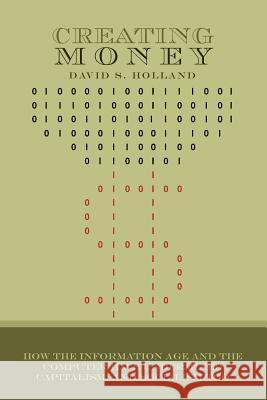Creating Money: How the Information Age and the Computer Have Undermined Capitalism, And Socialism Too » książka
Creating Money: How the Information Age and the Computer Have Undermined Capitalism, And Socialism Too
ISBN-13: 9781461002857 / Angielski / Miękka / 2011 / 136 str.
What caused the financial difficulties that exploded on the world's economies in 2007-2008 and that in the United States produced the Great Recession? Providing mortgages to unqualified borrowers has been blamed. So have complex financial instruments and strategies that few understood, and weird financial insurance products with names like credit default swaps. Also lax supervision, unfocused regulation, greed on Wall Street, greed on Main Street, accounting rules, maybe laissez faire government, maybe over-reaching government, probably some ideological hostility to government oversight in general, and much more. But the real story of the financial crisis involves much more fundamental matters. The real story lies in the rise of the importance of finance, a phenomenon that could be called the financialization of the economy. And that rise is a product of the Information Age and its tool, the computer. Complex financial assets and strategies were made possible by the computer and certainly were in their own right a significant contributor to the chaos that surfaced in 2007-08. But the cause and effect relationship between the computer and the recent, and ongoing, financial troubles is much more complicated. Complexity has actually served to mask the primary impact of the computer. That primary impact is money creation. The computer is a money-creating machine of the first order. How so? Start with the name of the new era: the Information Age. The raw material of the Information Age is in that name: information-kilobytes, megabytes, gigabytes, terabytes, petabytes, exabytes, and more of information. The tool that processes and manipulates the information is the computer. The product that is produced? Still more information. And ultimately money is nothing more than information: information about supply and demand, information about wants and desires. So a tool-the computer-that produces an endless supply of information is married to an industry-finance-that is information intensive if not solely about information and, more importantly, that actually creates a particular type of information, that type being money. The result is a money-creating phenomenon for which the world's economic systems, geared toward money as a scarce commodity, were not and are not prepared.
Zawartość książki może nie spełniać oczekiwań – reklamacje nie obejmują treści, która mogła nie być redakcyjnie ani merytorycznie opracowana.











